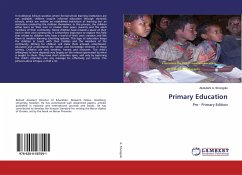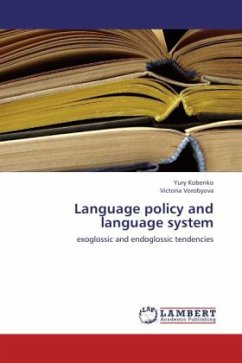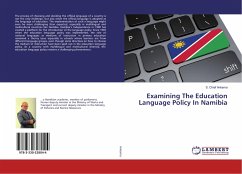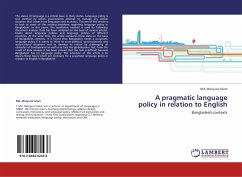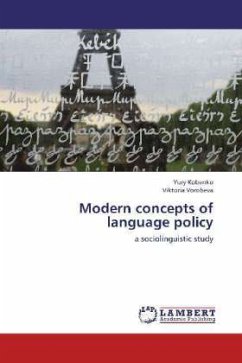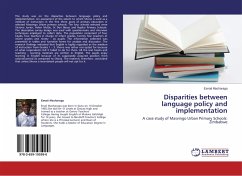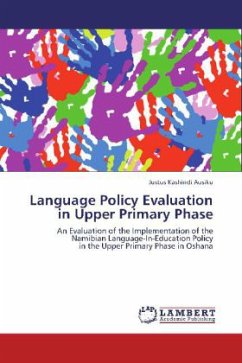
Language Policy Evaluation in Upper Primary Phase
An Evaluation of the Implementation of the Namibian Language-In-Education Policy in the Upper Primary Phase in Oshana
Versandkostenfrei!
Versandfertig in 6-10 Tagen
45,99 €
inkl. MwSt.

PAYBACK Punkte
23 °P sammeln!
After independence, in 1990, the government of the Republic of Namibia perceived the need to replace the old Language-in-Education Policy for schools with a new one that promotes the use of the mother tongue alongside English in schools and colleges of education. Consequently, the new Language-in-Education Policy (LiEP) was implemented in all 13 educational regions. The aim of this study is to evaluate the implementation of this policy in the upper primary schools in Oshana Region. The findings of the study were analysed according to relevant literature to determine if they were in line with t...
After independence, in 1990, the government of the Republic of Namibia perceived the need to replace the old Language-in-Education Policy for schools with a new one that promotes the use of the mother tongue alongside English in schools and colleges of education. Consequently, the new Language-in-Education Policy (LiEP) was implemented in all 13 educational regions. The aim of this study is to evaluate the implementation of this policy in the upper primary schools in Oshana Region. The findings of the study were analysed according to relevant literature to determine if they were in line with the theoretical background on language policy evaluation. At least five major findings emerged from this study that are described in relation to relevant themes, namely; home language, language preferences, language practices, policy awareness and government support.



